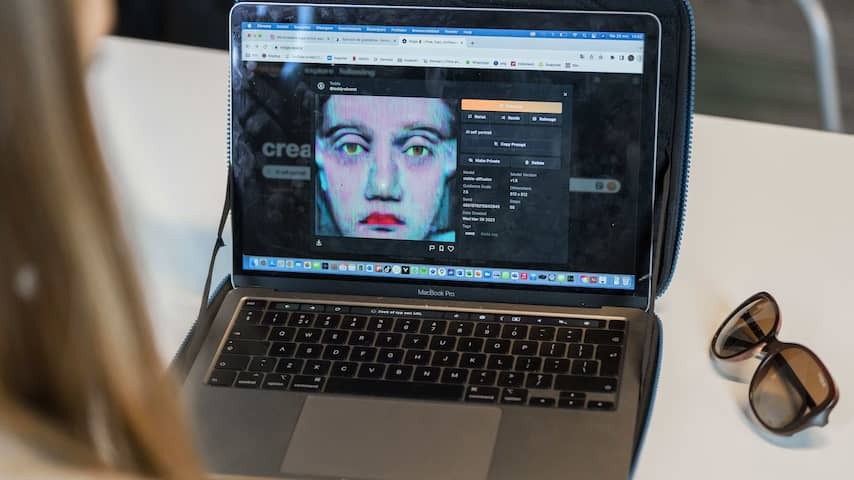
Articles in several Belgian magazines have been written with AI without making this clear to readers. This was reported by VRT NWS on Saturday based on research. In April and May, more than half of the online pieces in Elle magazine were allegedly generated by AI.
According to VRT, magazines Marie Claire, Forbes and Psychologies also used AI-generated content. Like Elle, the three magazines fall under parent company Ventures Media.
Not only were the articles allegedly generated by AI, but the authors are also fictional and conceived by AI, according to VRT. The profiles of two non-existent journalists were discovered by VRT on the Elle site.
After a tip from a reader, VRT discovered that the photo of Sophie Vermeulen, one of these fictional journalists, came from an AI database with images of non-existent people. In addition, her associated e-mail address turned out not to be real. According to Sightengine’s AI detector, the photo of another journalist, Marta Peeters, is also 99 percent certain to have been generated by artificial intelligence.
VRT writes that half of the online articles that Elle published in recent months were ‘written’ by these fictional journalists. According to the research, most of the articles are translated from the French version of Elle, while other pieces are based on foreign magazines in other languages.
The parent company says after questions from VRT that it was a test. “We generate articles that are completely created by AI and have not been editorially reviewed.”
Policy adjusted
Ventures Media has now made adjustments. “We understand that the use of aliases can lead to confusion.” The company says it will now be clearer that the content is generated by AI. Articles that VRT NWS writes about now state at the bottom of the text: “This content was generated using AI.”
According to managing director Gigi van der Zwaan, the Dutch Elle website does not contain any AI pieces. She tells the NOS that the Dutch magazine falls under a different publisher, the American Hearst.